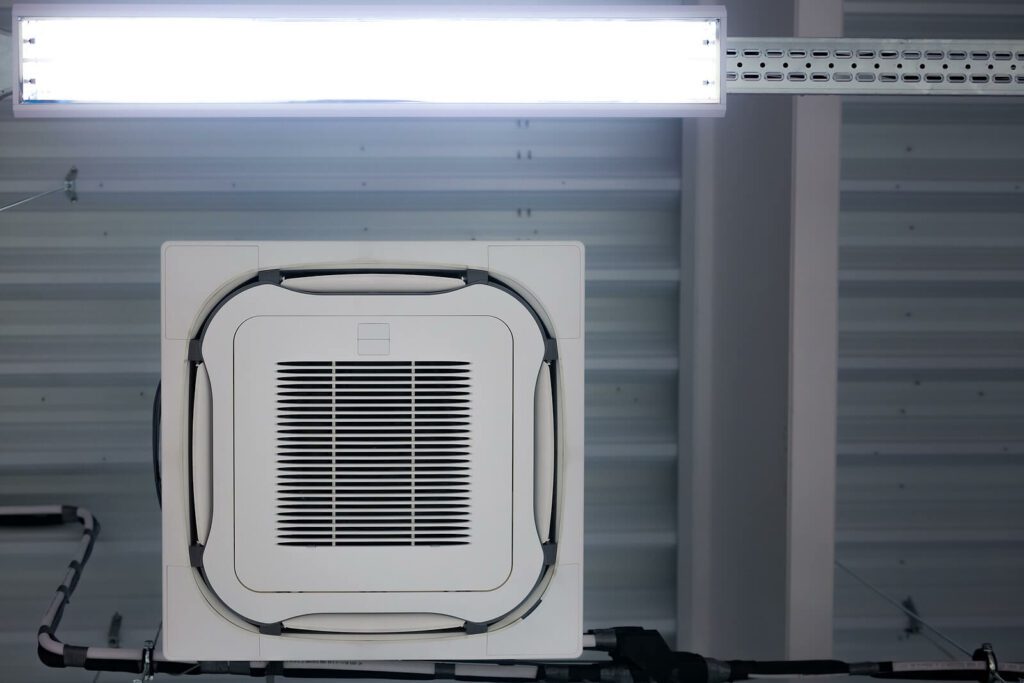Every homeowner essentially has the same question—how comfortable can I be without running up the energy bill? While an air conditioner is effective at managing indoor temperatures, a whole-house fan can have just as many advantages as an AC. Who will win when it’s AC vs whole-house fans.
When it comes to energy efficiency, a whole house fan wins the prize. Did you know that ceiling fans in early forms were used as early as 500 B.C? Obviously, historical persistence doesn’t tell the full story, especially when you consider they generally uses a fraction of the power an AC does. But is a whole house fan always the best choice? To help you better understand each option, here are a few comparisons between whole-house fans and ACs.
AC VS Whole House Fan
How Is a Whole House Fan Different?
Unlike an attic or ceiling fan, a whole house fan is a complete exhaust system. Air is circulated throughout the house and then vented to the attic via a series of ducts. The fan essentially works as a motor that pulls air from the living space by blowing in cooler, fresh air from outside. Windows need to be open for this to happen. Even if you don’t have an attic, the fan can work by forcing air outside.
How an Air Conditioner Works
While an AC serves mainly the same purposes, an air conditioner actually cools the air using refrigerant and a process of condensation that changes a gas to a liquid, which then moves to an evaporator coil. A fan circulates air across the coil to cool the rooms in your home. Rather than replacing hot air with cooler air, AC’s use mechanical and chemical processes to alter the temperature of the air running through the system.
How ACs and Whole House Fans Compare
If you’re concerned about how to cool your home most efficiently, here are some comparisons of how ACs and whole-house fans measure up:
- Cooling Ability: In terms of speed, whole-house fans can cool a home a lot faster than an air conditioner, and you don’t need to leave the fan on constantly. By contrast, AC manufacturers recommend leaving the unit on all day. The downside to using whole-house fans is nighttime temperatures must be substantially lower outside than indoors for the fan to work efficiently.
- Air Quality: Whole house fans draw fresh air in from outside, a great advantage if your outdoor air quality is good. However, air conditioning may be more suited for your home if it’s near heavy traffic or there’s high pollen or smoke. A fan is much less likely to emit any harmful gases or pollutants, compared to ACs, except for emissions related to producing electricity.
- Maintenance: Air conditioner maintenance is a multi-faceted, ongoing process that involves changing filters, cleaning coils, getting tune-ups, etc. Neglecting to maintain it will result in a costly, inefficient AC that’s prone to breakdowns or failures. With a whole house fan, all you need to do is clean the blades occasionally.
- Cost: A central air conditioning system can cost several thousand dollars. On the other hand, you can purchase a whole house fan for a few hundred dollars or more. There’s also longevity to factor in; an AC lasts about 7 to 15 years, while with a whole house fan, your investment can last up to 25 years!
Is a Whole House Fan Always the Best Choice?
Not in extremely hot climates. And it’s not without risks; installation requires cutting a hole in the ceiling. Without insulation, things can get chilly in winter, while you also risk backdrafts from fuel combustion appliances. Another disadvantage is noise, which can be minimized with proper installation, adding rubber of felt gaskets, or running the fan at a lower speed.
Consult with an HVAC Professional
At Black Hills Inc. Home Services, we can install and replace your air conditioner. We can also recommend more practical, efficient options, such as whole-house fans, depending on the location and needs of your home. For professional advice and service, call us today at 888-704-6293.

